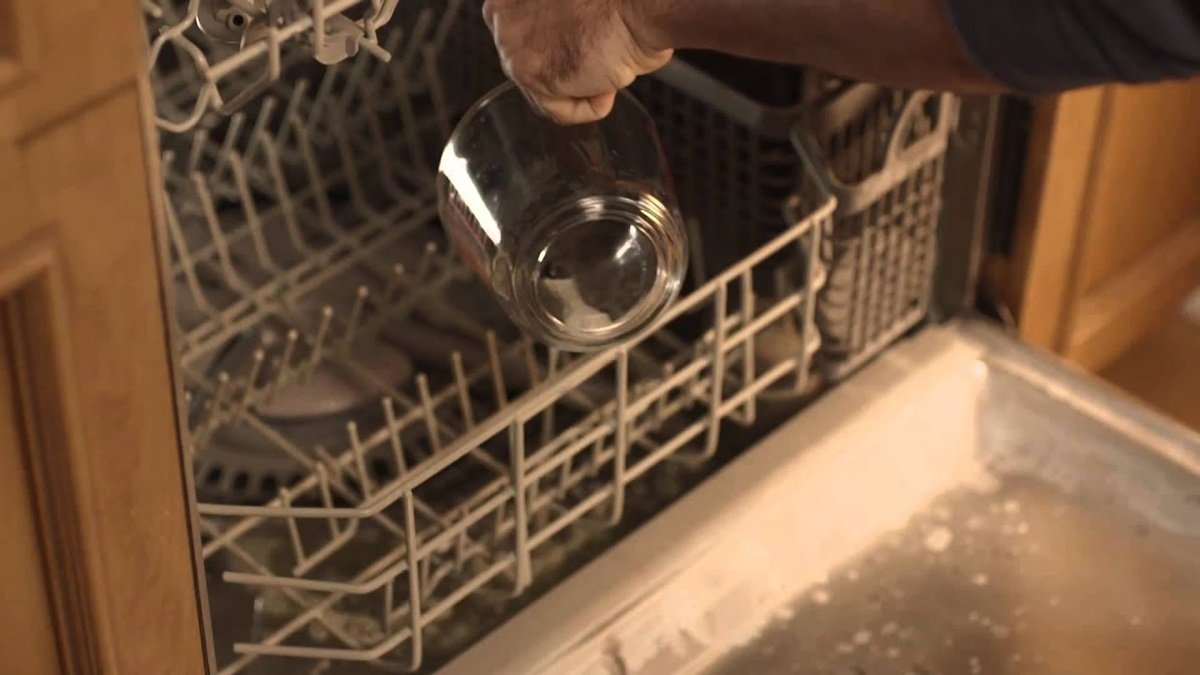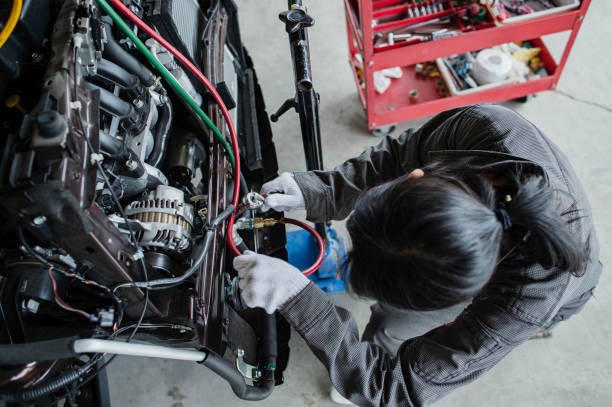How To Remove Mold From Your Dishwasher And Keep It Clean
Step-By-Step Guide To Removing Mold From Dishwasher
Dishwashers are one of the most convenient appliances in our homes, but over time, they can become a breeding ground for mold. If you’ve noticed an odd smell coming from your dishwasher or seen dark spots inside, it’s time to take action. Mold can be harmful to your health and can also make your dishwasher less efficient. This blog will guide you on how to remove mold from your dishwasher. We will also offer tips to keep it clean. Finally, we will explain when to consider mold cleanup services. We will also discuss when you might need professional help, such as mold remediation Hudson NY or biohazard cleaning.
Why Does Mold Grow In Dishwashers?
Dishwashers are warm, damp, and often filled with food particles making them the perfect place for mold to grow. Mold thrives in moist environments, and with all the water running through a dishwasher, it’s easy for moisture to linger. Over time, this moisture, combined with leftover food and grease, creates the ideal spot for mold to develop.
If mold isn’t cleaned, it can spread and become a health hazard. The worst part? Every time you run your dishwasher, mold can spread to your dishes and utensils, which can lead to more serious health issues.
How Do You Know If Your Dishwasher Has Mold?
Before you dive into cleaning, it’s important to recognize the signs of mold in your dishwasher. Here are some things to look out for:
- Foul Smell: If your dishwasher has a strong, musty odor even after a wash cycle, that’s a sign mold might be present.
- Dark Spots: Look inside your dishwasher. If you see black, green, or white spots, those are likely mold colonies.
- Poor Performance: If your dishwasher isn’t cleaning your dishes as well as it used to, it could be because mold is clogging important parts.
Once you notice any of these signs, it’s time to act fast. You don’t want mold spreading to your dishes or utensils, or worse, into your home. For larger mold issues, you may need to call mold cleanup services or consider mold remediation Hudson NY.
Supplies You’ll Need To Remove Mold
Luckily, removing mold from your dishwasher doesn’t require fancy tools or chemicals. You can do most of the cleaning with supplies you already have in your kitchen. Here’s what you’ll need:
- White vinegar
- Baking soda
- Dish soap
- Sponge or old toothbrush
- Rubber gloves (optional)
If your dishwasher has more severe mold growth, professional mold cleanup services might be necessary.
Step-By-Step Guide To Cleaning Mold From Your Dishwasher
Now that you know why mold grows in your dishwasher and what signs to look for, it’s time to clean it up. Follow these steps for a thorough and effective clean.
Step 1: Empty The Dishwasher
Start by removing all the dishes, racks, and utensil holders from the dishwasher. You want the inside to be completely empty, so nothing blocks your cleaning process. Set aside the racks and holders so you can clean them later.
Step 2: Clear Debris From The Drain
The drain at the bottom of your dishwasher is one of the main places where food particles collect. These particles can rot and encourage mold growth. Remove any large debris you find around the drain. Wearing gloves is a good idea if the drain is especially dirty.
If the drain is very dirty, consult mold cleanup services or consider professional mold remediation in Hudson, NY.
Step 3: Clean Removable Parts
Take the racks and utensil holders you removed earlier and soak them in warm, soapy water for 15 minutes. Use a sponge or old toothbrush to scrub away any mold, grease, or food particles. Rinse them well and set them aside to air dry.
Step 4: Wipe The Interior Of The Dishwasher
Using a cloth or sponge with warm, soapy water, wipe down the inside walls, door, and seals of your dishwasher. Pay extra attention to the corners and crevices, as mold often hides in these hard-to-reach spots. An old toothbrush can help you scrub these tight areas.
Step 5: Run A Vinegar Cycle
White vinegar is a natural cleaner that kills mold and bacteria. Place a cup of vinegar in a dishwasher-safe container on the top rack of your empty dishwasher. Run a full hot-water cycle. The vinegar will help clean out any remaining mold and leave your dishwasher smelling fresh.
If mold persists after this step, it’s time to think about mold cleanup services or more thorough mold remediation Hudson NY.
Step 6: Use Baking Soda For Extra Cleaning
After the vinegar cycle, sprinkle a cup of baking soda on the bottom of your dishwasher. Run a short hot-water cycle to help eliminate any lingering odors and stains. Baking soda is a mild abrasive that helps scrub away mold spots and deodorizes your appliance.
Step 7: Let The Dishwasher Dry
Once the cleaning cycle is complete, leave the dishwasher door open for a while to allow it to dry completely. Mold loves moisture, so keeping your dishwasher dry will prevent it from returning. You can also wipe down the inside with a dry cloth to speed up the process.
Preventing Mold From Coming Back
Cleaning your dishwasher once can help, but to keep mold away for good, you’ll need to do some regular maintenance. Here are a few tips to prevent mold from coming back:
- Run Regular Cleaning Cycles: About once a month, run a vinegar cycle like we discussed earlier. This will keep mold from building up over time.
- Keep the Door Open: After running the dishwasher, leave the door slightly open to let moisture escape. This prevents dampness, which mold loves.
- Wipe Down Seals and Corners: Mold tends to hide in the door seals and the small crevices inside your dishwasher. Regularly wipe these areas with a cloth to keep them dry and clean.
- Use the Dishwasher Frequently: Dishwashers that sit unused for long periods can grow mold faster. If you’re not using your dishwasher regularly, be sure to clean it once in a while to prevent mold from building up.
For more serious cases or recurring mold, it’s a good idea to consult mold cleanup services or consider biohazard cleaning.
When To Call In The Professionals
If you’ve tried cleaning your dishwasher and the mold keeps coming back, or if the mold problem is extensive, it may be time to call in professional help. Mold cleanup services are trained to deal with tough mold problems that might be difficult to remove on your own.
Professionals can do more than just clean your dishwasher. If mold has spread to other parts of your kitchen or home, it could become a health hazard. That’s when biohazard cleaning is essential. Biohazard cleaning teams are experts at removing mold and other hazards. They will make your home safe and clean.
Additionally, if you live in Hudson, NY, and mold has become a persistent problem, you might need mold remediation Hudson NY. Mold remediation specialists can identify the root cause of the mold and take steps to prevent it from returning.
Steps To Clean And Prevent Dishwasher Mold
Mold in your dishwasher can be frustrating, but it’s not a problem that you have to live with. By following the simple steps in this guide, you can clean your dishwasher, prevent mold from returning, and keep your dishes safe and fresh.
If mold becomes too much to handle or if you’re dealing with a larger infestation, don’t hesitate to reach out to professional mold cleanup services. For serious mold issues, especially in Hudson, NY, consider mold remediation Hudson NY. And if mold has spread beyond the dishwasher, you may need biohazard cleaning to ensure your home is safe.






